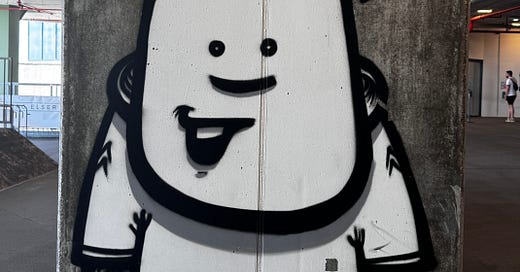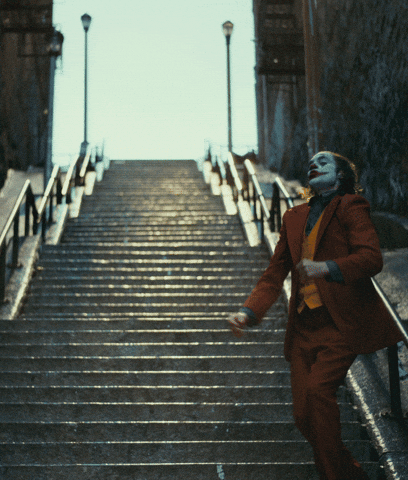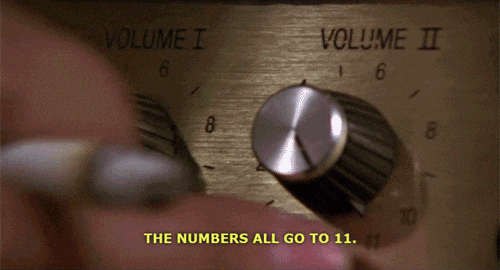IN RESIDENCE: Weeks 2 & 3 - Germany
Moin von Hamburg! My independent "residency" in Europe continues...
Jeff was an exceptional tour guide - organizing trips for groups to various locations with educational events. During our time together and he was away for work, he would send me videos explaining locations and the significance for him. It is with his spirit and memory that I practice sharing my perspective on experiences in culture during my own travels.
Moin Moin! The North German greeting
The next stop on my residency is Germany. I was fortunate to have an incredible aunt, Andrea, who gifted her nieces and nephews the opportunity to travel “a week wherever you wanted to go” upon graduation from secondary education. I pounced on the chance to visit Germany and enjoy return visits any time I can. Thank you, Aunt Andi for your support, generosity, and guidance. I will carry your memory always.
Staying with “mein FalsSchwester” (my “chosen sister”) in Hamburg for more than a week, she took me to new destinations for me - Osnabrück (site of the historical treaty) and Timmendorf on the Ostsee. I also spent a day in Berlin meeting classmates for the first time in person, and longtime colleagues from our times at Santa Fe Opera and the Metropolitan Opera. Hamburg, though, is a place I really love and has my heart for decades and I’ll focus on some aspects of the coolest “gateway to Europe.”
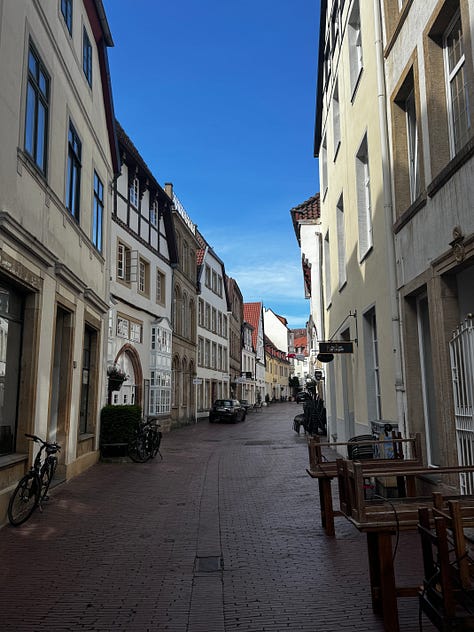
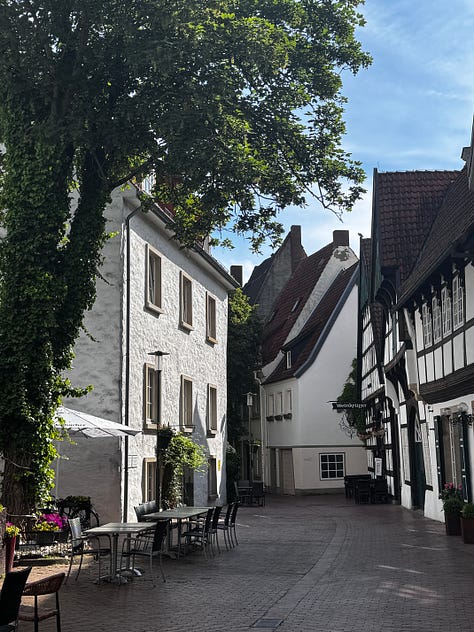
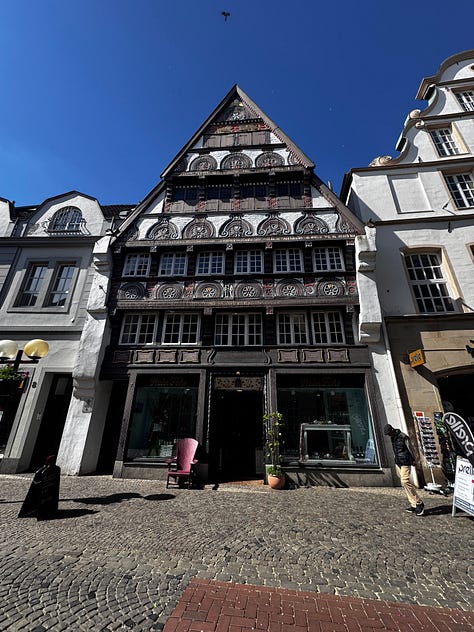
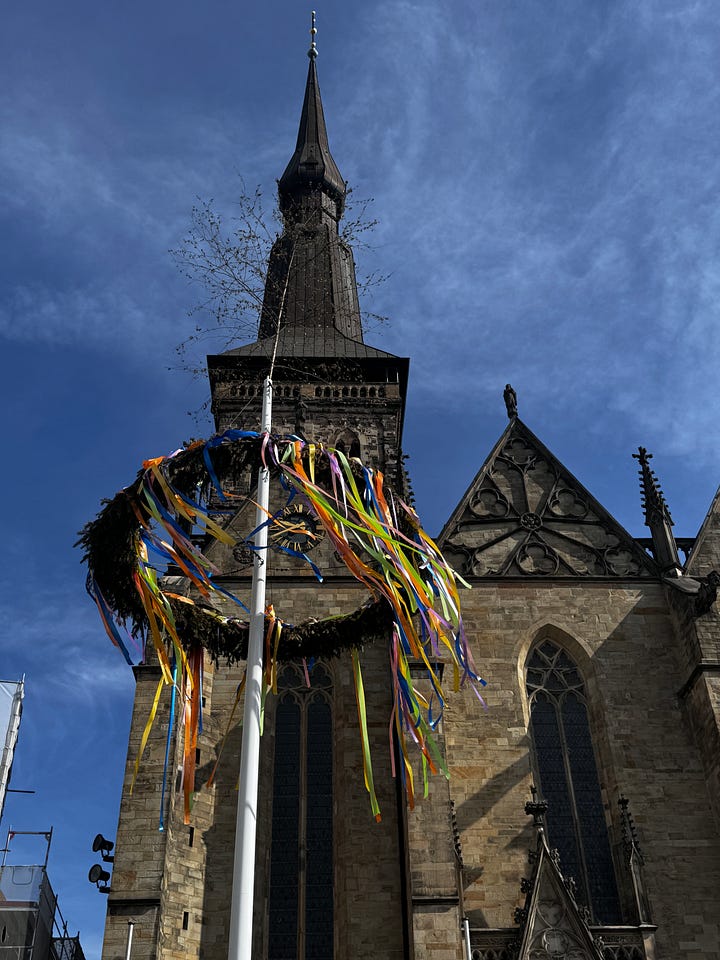
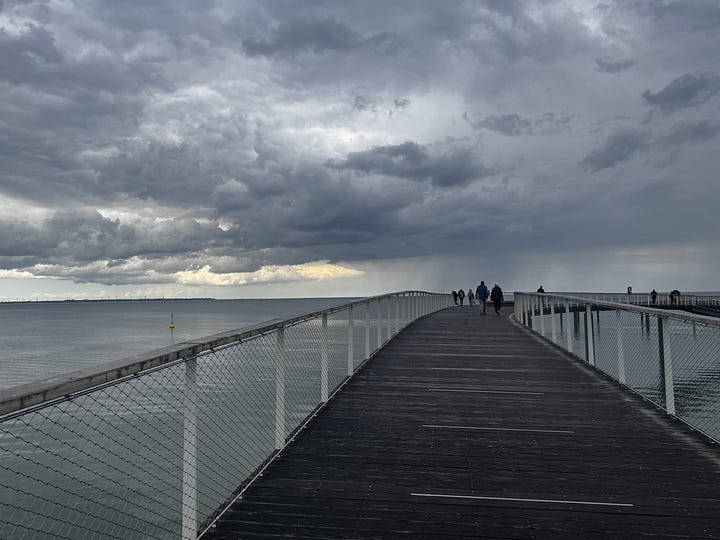
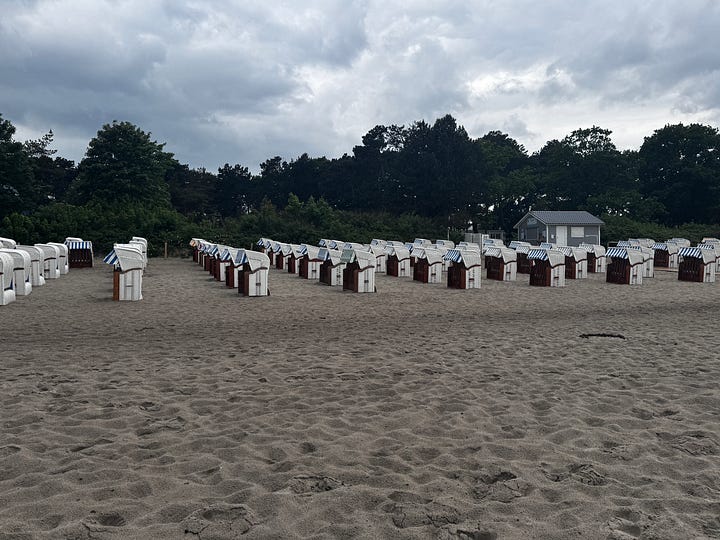
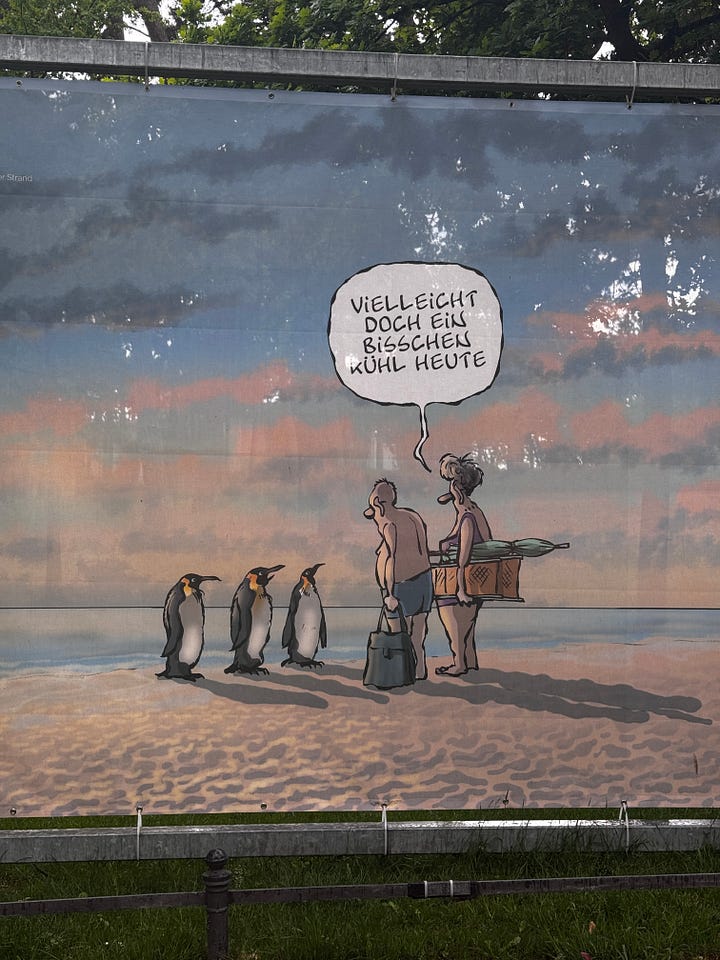
Hamburg’s cultural poster mosh pit
Let’s talk about the public poster art and sniping game in Hamburg. It is FIRE.
Ever since I’ve been visiting Hamburg and Germany at large, I’ve loved the even playing field of all types of promotions in the arts. There are kiosks “Litfaßsäule” (IPA pronunciation[lˈɪtfaszˌɔ͡ølə])(tangent about the beautiful design and historical context of the eszett here - that’s the ß which is for “ss”) all over Germany. In major cities, we’re used to seeing posters promoting all kinds of concerts and events, but I just love how the diversity of film/art/pop/classical is mashed together. Rather than a NYC subway station which is taken over by one cohesive promotion, city streets are bombarded by the abundance of the culture and opportunities the people of the city create and provide.
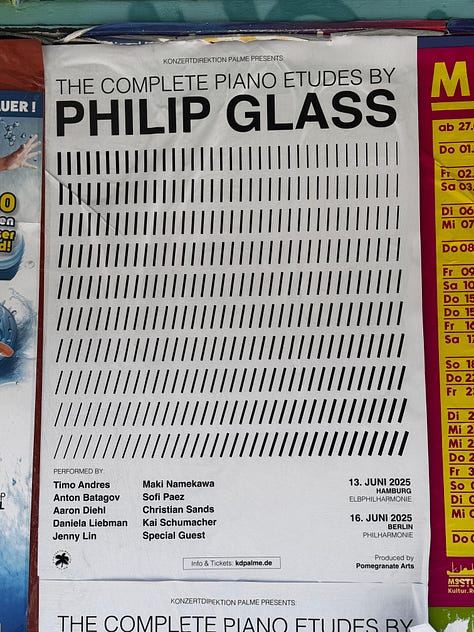
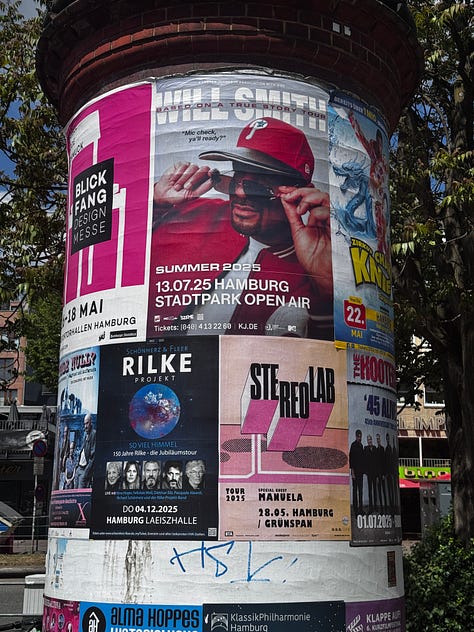
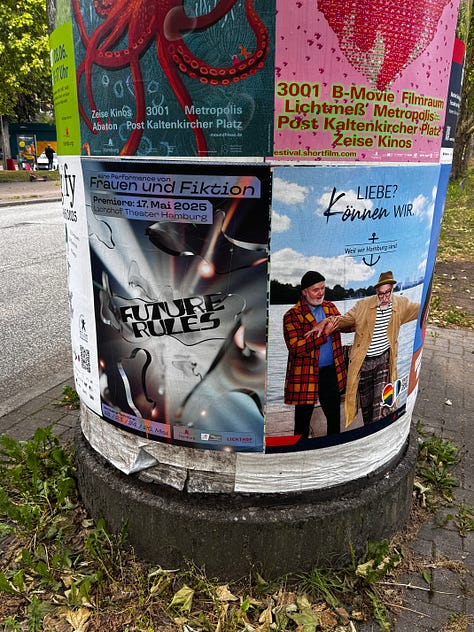
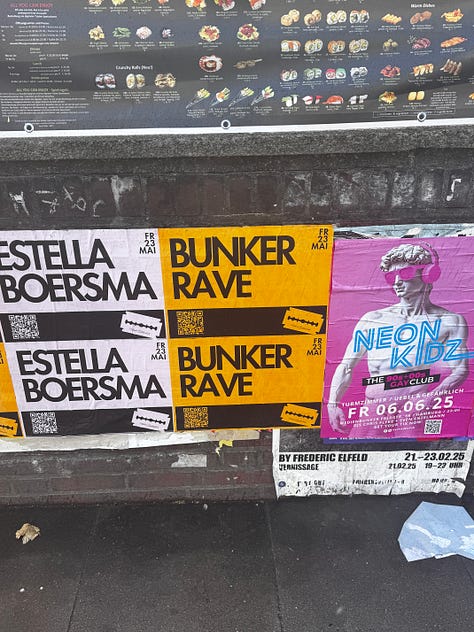
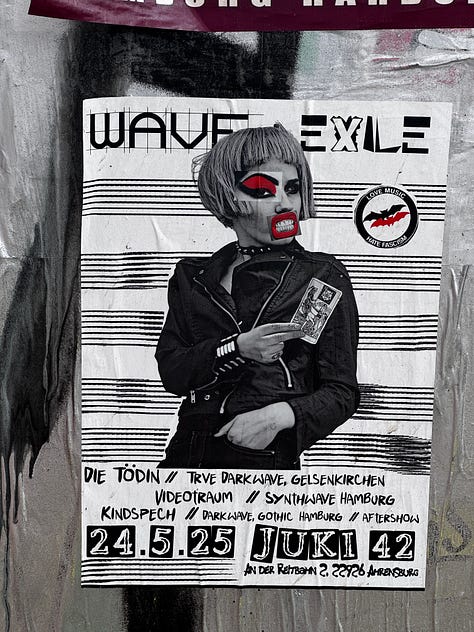
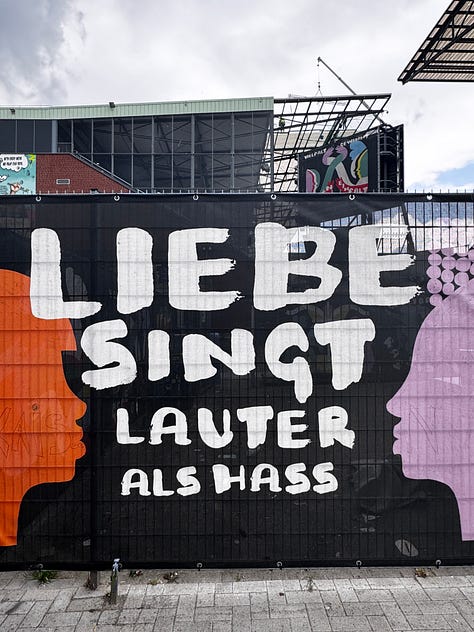

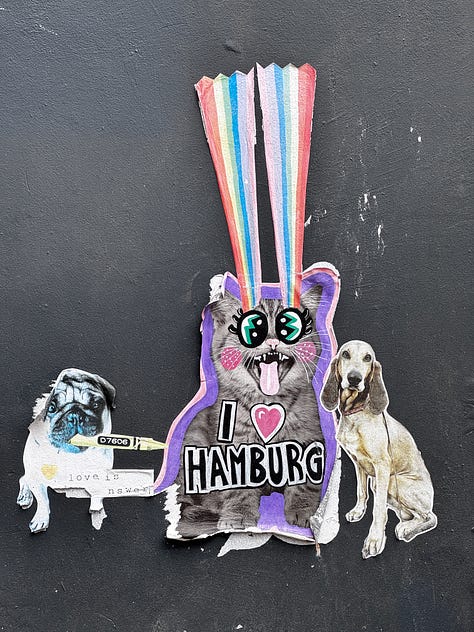
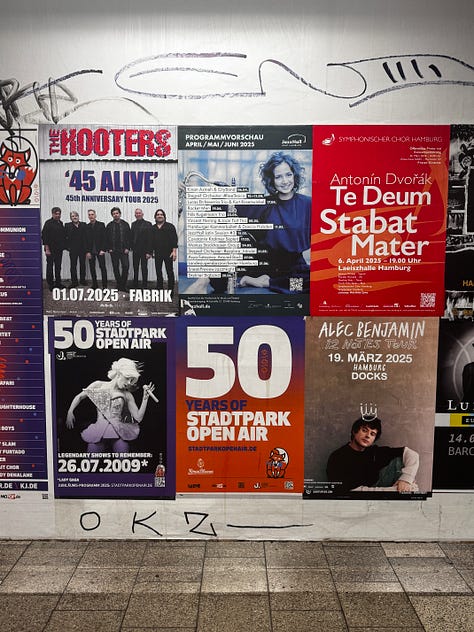
Then there’s sniping too, which is where you see rogue posters on construction sites or buildings. I love the renegade style of graffiti and the poster art. Especially in the area of St. Pauli - a highly liberal area where they openly announce their values - the poster graffiti is at times lighthearted or unapologetically defiant.
But I gotta elaborate on the actual design of the posters as well. One event promotes their performances of Philip Glass’ complete piano etudes in an incredibly distinct way. Known for the style of minimalism, Philip Glass’s works are analogous in the sense of acoustic orchestration as Kraftwerk is to electronic orchestration. While there are repetitive patterns, they also evolve - adding or subtracting layers, notes in a melodic pattern and so forth. The poster is simple in its presentation, yet evokes a #iykyk way of reaching the cognoscenti. The slashes in the poster represent the subtle changes found throughout the etudes. Of course as I looked further, the producer is the awesome NY-based Pomegranate Arts!
You’ll Never Walk Alone
For a long time, I have been following the German professional soccer league Bundesliga. In the top tier, I’ve followed Borussio Dortmund, and in the 2nd tier, FC St. Pauli - who happen to be connected to my beloved Detroit City FC During the 2023/24 campaign, they got promoted to top tier and remain there for this next season - well done fellas! And ummm sorry Dortmund, I’m exclusively FC St. Pauli now.
But more than that is what the club represents. They are the biggest ambassadors of the St. Pauli neighborhood in Hamburg - yeah, same place as St. Pauli Girl beer - they stand for the melting pot of one of the largest ports in the world - all walks of life have come here and are welcome here! They play ACDC and “You’ll Never Walk Alone” from Carousel, but the version by the Dropkick Murphys.
The club ethos stands for everyone - promoting communities whose rights are threatened and also denying sponsorships from corporation who profit over the subjugation of many communities. They rather not have the funding - and the hometown supporters of the players, also support the ideals of the club!
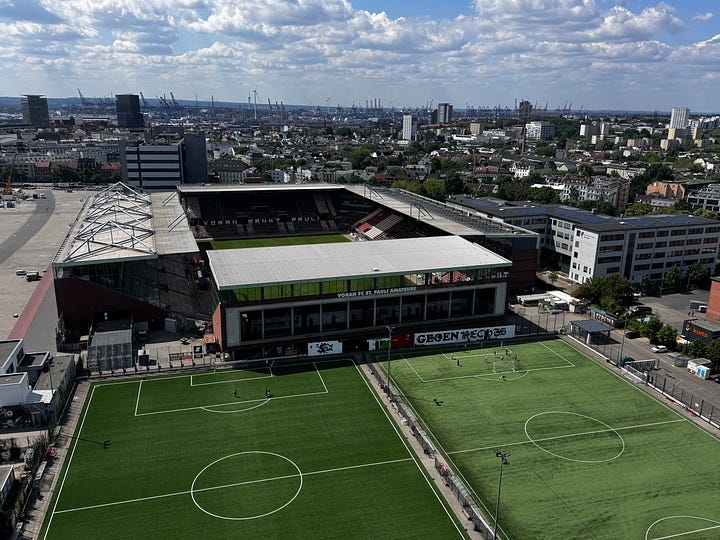
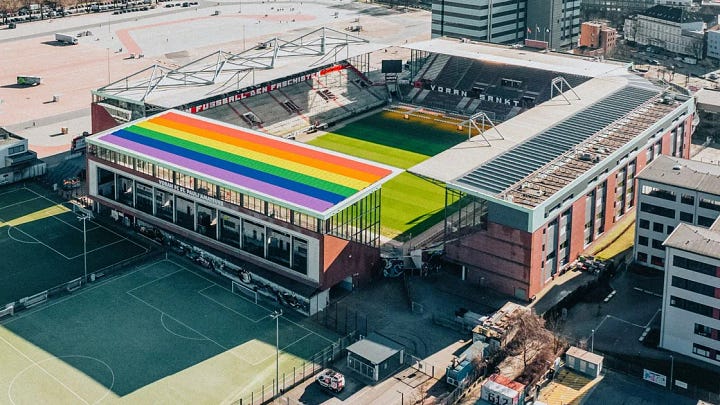
Their activism and amplification of those under represented voices rocks and latest project demonstrates that, as revealed its partnership with LichtBlick to not only provide a renewable and sustainable energy source for their near-30,000-capacity home, but also one that aligns with St Pauli's long-established stance on LGBTQ+ rights.
And then you get stories about their retired players moving into acting in theater.
The Elphie
When Hamburg’s Elbphilharmonie concert hall opened in 2017, I had to wait my turn to enter the building which had been (in)famously in the headlines for decades to be an architectural and acoustic marvel. In 2018, the only ticket I was able to get was an electronic concert by members of the Moog Ensemble. I didn’t mind since this was a rare opportunity to attend a concert at the Elphie AND two of my favorite musicians and composers - Will Gregory of Goldfrapp and Adrian Utley of Portishead.
It was a magical concert even in the guise of a classical program with a few world premieres and then ending with some Bach. An absolute beautiful introduction of a 21st-century concert hall that would make Wendy Carlos, of Switched on Bach and game-changed soundtracks, proud.
However, it was not until this past weekend that I was able to experience the acoustical environment with analog instruments. What better way to hear these acoustics than with Alban Berg’s opera Wozzeck.
100 years after the premiere, 21st-century ears and sensibilities are accustomed to the sounds of serialism and genius of Berg’s work. Without Berg and serialism in the Second Viennese School, horror movie soundtracks would be different. Perhaps The Shining would have been a rom-com! Psychologically dark in tone, the story is adapted on the incomplete existentialist play, Woyzeck by Georg Büchner, which confronts the demise of an individual through the systemic gaslighting of several institutions - kinda like The Joker (2019).
Wow - did the acoustics, the cast, and the NDR Elbphilharmonie, led by Music Director Alan Gilbert deliver the sounds to these anticipated ears. The hall is clear in timbre, yet blooms all around you like sitting in the middle of a Tibetan singing bowl. You can hear the attack of every instrument and phrase - the bright brilliance of the glockenspiel, the hair of the bow as it vibrates the string - at any volume - crisp, yet warm.
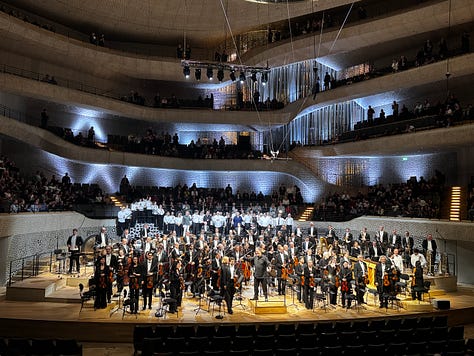
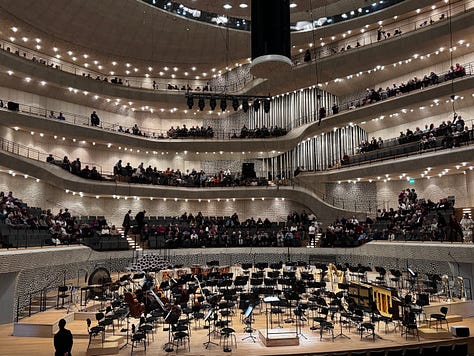
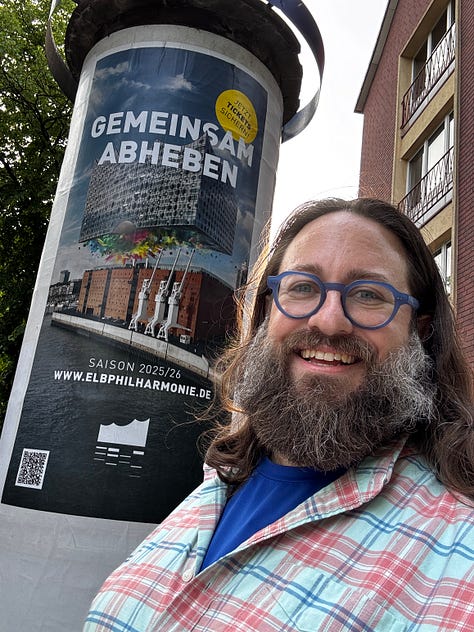
When the hall opened, the acoustics were questioned when singers stood in the transitional soloist position. Singers seem to have been covered by the orchestra and with many new concert spaces, it was immediately dismissed as an achievement with negative reviews. Sometimes you need to break in new shoes, and in this instance the musicians needed to investigate further how to adapt to the new hall. It was learned that singers are more effective situated in the back wall BEHIND the orchestra, where choral ensembles stand for performances.
With no pit, there is an absolute concern to have the entire Orchestra for the Berg onstage with the singers behind, but that worry was quickly diminished as Matthias Goerne, known for his interpretation in the lead role, and Peter Hoare as the Captain took the stage in the first scene. Christine Goerke in her full-length role debut as Marie took advantage of all the range of dynamics and acoustics the hall offers. From her spoken words as she read from the Bible to the full voiced blossom of a high C-sharp, you heard it all and the nuances of her characterization.
And in Act 3, as we get into the deep darkness, Maestro Gilbert and the orchestra let that tension stir and the dynamics build to an attack that took that building to 11!

